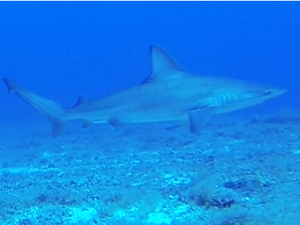LIFE PROMETHEUS
The LIFE PROMETHEUS project aims to conserve endangered shark and ray species in the Mediterranean Sea. Recently funded by the European Union;LIFE Programme (Programme for the Environment and Climate Action), the project will commence on 1st October 2024. The 5-year LIFE PROMETHEUS will involve 21 partners - 18 beneficiaries and 3 associates - from 5 European Countries.
The project will be coordinated by Prof. Emanuela Fanelli of the Department of Life and Environmental Sciences at the Università Politecnica delle Marche. Endowed with a grant of EUR 4.3 million, the LIFE PROMETHEUS project is dedicated to enhance the well-being of 15 elasmobranch species (sharks and rays) listed as threatened with extinction and categorized as 'critically endangered', 'endangered', or 'vulnerable’ in the International Union for Conservation of Nature's (IUCN) Red List.
The project will take place in twelve different areas across the Mediterranean, including Spain, France, Italy, Greece, and Cyprus. These areas are important for biodiversity or are essential habitats for various stages of the life cycle of the targeted species. To protect these species, the consortium plans to reduce accidental catches by using electromagnetic deterrents on specific types of fishing gear, such as longlines and gillnets. Additionally, the project aims at promoting alternative and sustainable fishing practices by targeting non- Mediterranean species, like blue crabs and scorpion fish, instead of elasmobranchs. Finally, it will also focus on the promotion of sustainable underwater tourism.
The LIFE PROMETHEUS project will actively engage fishermen by promoting the sustainable and efficient use of marine resources. It will also provide them with support in accessing financial incentives for adopting measures aimed at elasmobranch conservation. Furthermore, LIFE PROMETHEUS aims to improve the supply chain by increasing awareness and providing information to consumers about the importance of purchasing sustainable fish species. This will be achieved through the promotion of a "shark-free" eco- label, driving consumers towards the consumption of invasive species such as the blue crab.

